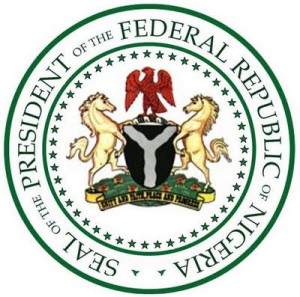When trapped in a sea of wishful thinking and unrealised dreams, one is bound to look for ways to justify one’s action or inaction. At this point in time, one would conclude by saying, if to se. as a prelude to an explanation. In Nigerian Pidgin, the phrase if to se simply means, “assuming that”. This could be further broken down as “if to se ah no” or “if I had known.”
In the light of the growing usage of Nigerian Pidgin in the country today, I am confident of its endorsement as one of our official languages alongside the English Language in the near future.
As individuals, we usually explain away the reasons for our failure to deliver, or any development for that matter, starting with “if to se…” I must say that, this is a cheap approach to starting a sentence and it places the speaker on the defensive. Conscious of his financial unpreparedness to attend the marriage ceremony of a colleague in far away Yola, one of my friends, Mr. Abdullahi pretended not to have been ‘pre-informed’ of the event. Two days to the said event, he was confronted by a mutual friend of ours who enquired as to whether he would be attending. He said: “if to se dem tel mi bifo, ah fo sabi hau ah fo pripá”, meaning, “assuming that I was informed of the marriage well in advance, I would have made adequate preparations towards attending”.
This may sound an easy way out of defending his intention not to attend the marriage, but it was definitely selfish.
Overwhelmed by the perquisites of office, most politicians had ended up disappointing the electorate who voted them into office. But a quick flash back to when they were campaigning for votes, would bring back memories of their numerous promises which were usually backed by, “plenti plenti if to se dem.”
For example: if to se ah de fo di pati we de fo pawa sins, una fo si hau ah fo don sopraiz una wit beta beta rod, wota an gud hospital. Dis taim, tins go chenj (Had I been a member of the ruling party, I would have surprised you by the provision of good roads, pipe-born water and a functional hospital. This time around, there will be great change for the better).
The above is a sad report of a politician who couldn’t deliver on the dividends of democracy, ascribing his failure to the fact that he was a member of the opposition party. Having now joined the ruling party, he is promising positive changes.
For me, “if to se ah bi president of Naijiria, a fo mek Pidgin awa nashonal languej” because with Pidgin, we will have simpul an shot budgets, explained in a language, which we all will easily understand. Tu mosh grama na im de spoil mata.
Imagine all the time it takes for budgets to be prepared and eventually signed into law. Haba! With the ol di gramatika rigmarole we see on national TV, I know for sure that if Pidgin was used as a language of discourse at the National Assembly, we would have shorter sessions and increased turn out of bills into law!
Imagine the following scenario of the president at a joint session of the National Assembly addressing the members in Pidgin:
Nigerian President: Ah tek God nem grit ol of una. (I greet you all in the name of God)
Senate President: Awa oga kpata kpata wi grit yu. (Our dear President, we greet you in return)
Nigerian President: Hau fa? Hop eviritin de kankpe. (How far have you gone with the job at hand? Hope all is well).
Senate President: Evritin don don. All is well. We have concludedeverything.
Nigerian President: Una bi koret pipol. Mek ah sign mai pat jare. (You are all wonderful. Let me append my signature).
When the National Assembly handles all its activities wit alakriti, we will experience kpa kpa kpa in governance and the only way we can get there is by making Pidgin a formal language in Nigeria. No big big gram, and, we will begin to experience less work for the Economic and Financial Crimes Commission (EFCC).
If to se man pikin na president ah fo du somtim. If to se …















